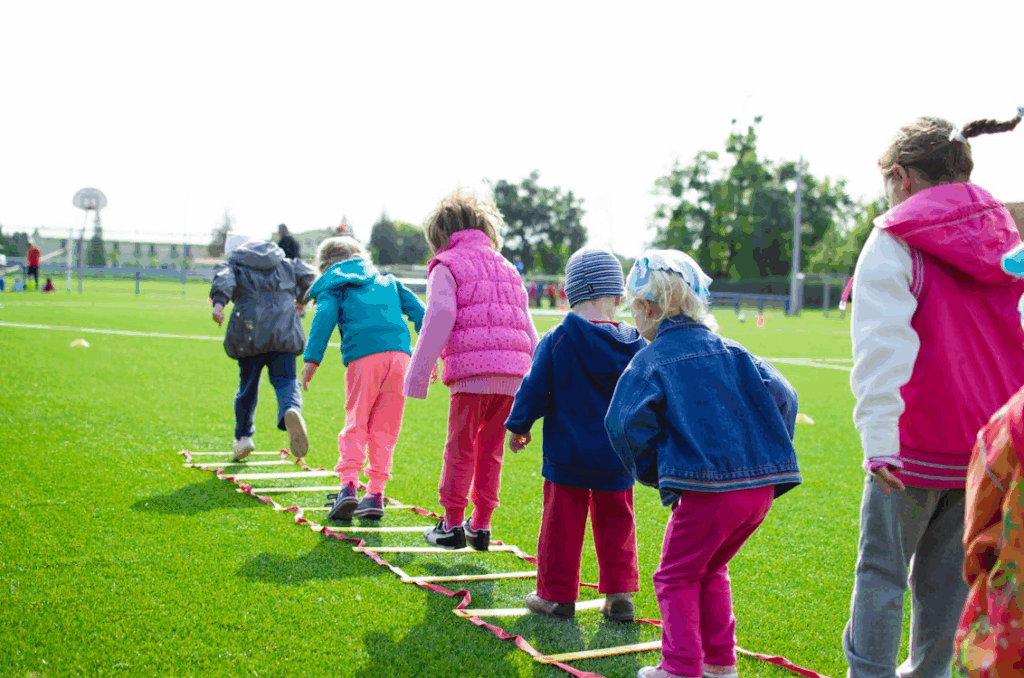Exciting new research from the International Journal of Environmental Research and Public Health (2020) shows that participation in daily activities can transform children’s mental health. This longitudinal study, tracking 77 children with physical disabilities (PD) and 94 typically developing (TD) children over four years, reveals how active engagement in home, school, and community settings fosters emotional well-being. Let’s explore these compelling findings and discover how encouraging participation can create brighter, happier futures for kids.

Participation: A Key to Emotional Well-Being
The study defines participation as engaging in everyday activities, measured by independence (ability to perform tasks with minimal support) and frequency of attendance (how often kids join activities). Using tools like the Functioning Scale of the Disability Evaluation System-Child Version (FUNDES-Child) and the Child Health Questionnaire (CHQ), researchers found that frequent participation reduces mental health challenges like loneliness, nervousness, and feeling upset. This is a vital insight for parents, educators, and healthcare providers aiming to support children’s emotional growth.
Participation Patterns in Children with Disabilities
For children with PD, the research highlights a positive “independence-frequency gap.” These kids often participate more frequently than their physical capabilities suggest, thanks to supports like adaptive tools or inclusive programs. This frequent attendance is strongly linked to reduced loneliness, boosting social and emotional health. The study underscores that enabling kids with PD to join activities, even with assistance, fosters a sense of belonging and strengthens mental resilience.
How Typically Developing Kids Benefit
For TD children, the study shows a different trend. They start with a negative independence-frequency gap, meaning they can perform tasks independently but don’t always participate as often as expected. Over time, their participation increases, aligning with their abilities. This shift correlates with reduced nervousness, suggesting that regular engagement in activities builds confidence and emotional stability. Schools and community programs are key to keeping TD kids involved.
Strategies to Boost Participation
The research offers actionable ways to enhance participation and mental health:
- Create Inclusive Spaces: Schools and communities should provide accessible environments and adaptive tools to ensure all kids can participate.
- Foster Social Bonds: Group activities that build friendships reduce loneliness, especially for children with PD. Teachers can nurture these connections.
- Use Environmental Supports: Assistive devices and supportive adults help kids with PD participate more often, enhancing emotional well-being.
- Encourage Consistent Engagement: For TD children, regular involvement in extracurriculars or community events reduces anxiety and builds confidence.
Telehealth and EMDR: Supporting Mental Health
While participation is central to emotional health, therapies like telehealth and EMDR (Eye Movement Desensitization and Reprocessing) offer additional support. Telehealth provides easy access to mental health professionals, ideal for children with PD facing mobility challenges. EMDR can help kids process emotions like anxiety or loneliness, complementing the benefits of active participation. Together, these tools create a comprehensive approach to mental health.
A Bright Future Through Participation
The research delivers a powerful takeaway: participation is a cornerstone of mental health for children with and without physical disabilities. By prioritizing frequent engagement in meaningful activities, parents, educators, and communities can help kids thrive emotionally. From inclusive school programs to vibrant community events, every chance to participate matters. Let’s build environments where every child can connect, engage, and flourish.
Dr. Sara C is a renowned therapist specializing in EMDR, CBT, and DBT therapies, providing top-rated telehealth services to Newport Beach, CA; Beverly Hills, CA; San Diego, CA; Portland, OR; Jacksonville, OR; Dallas, TX; and Houston, TX. Choose her for the best therapy in California, Texas, and Oregon.
In case of a mental health emergency, please call 911 or seek immediate professional help.
Source:
Hwang, A.-W., Chang, C.-H., Granlund, M., Imms, C., Chen, C.-L., & Kang, L.-J. (2020). Longitudinal trends of participation in relation to mental health in children with and without physical difficulties. International Journal of Environmental Research and Public Health, 17(22), 8551. https://doi.org/10.3390/ijerph17228551